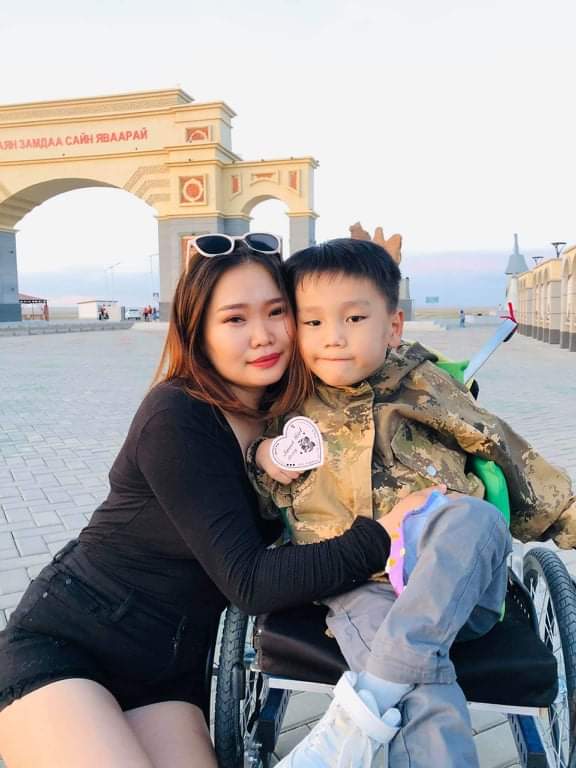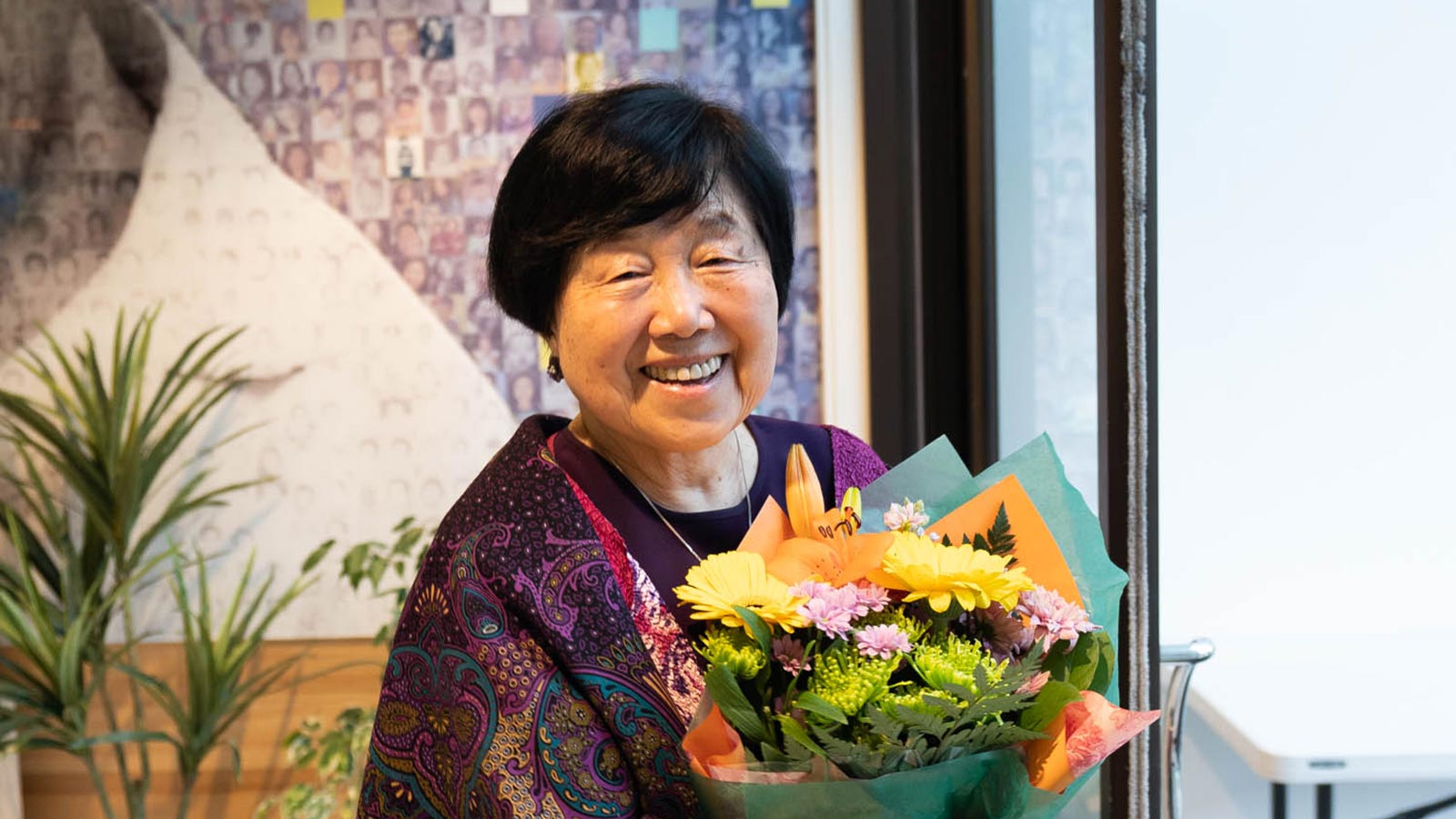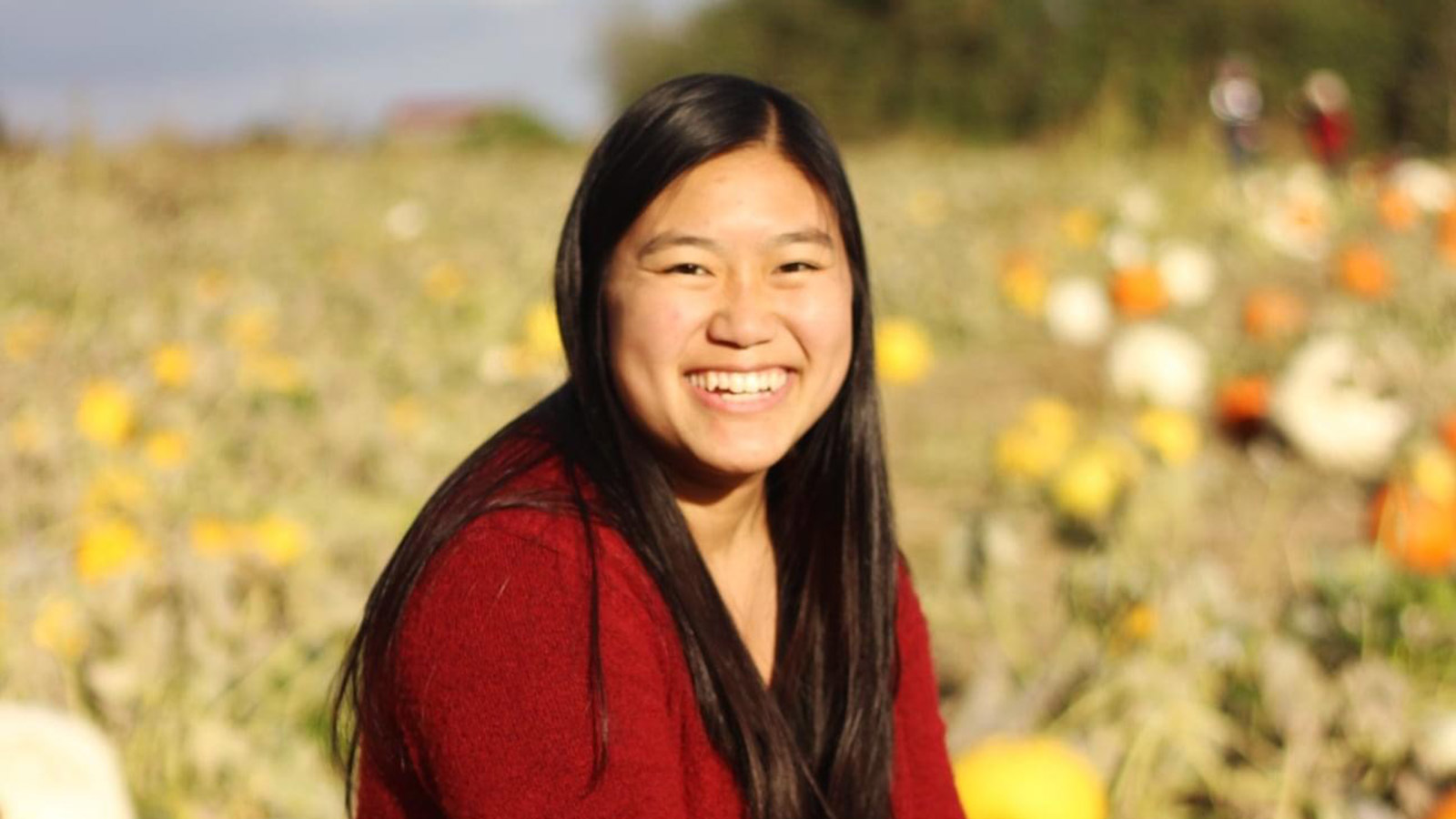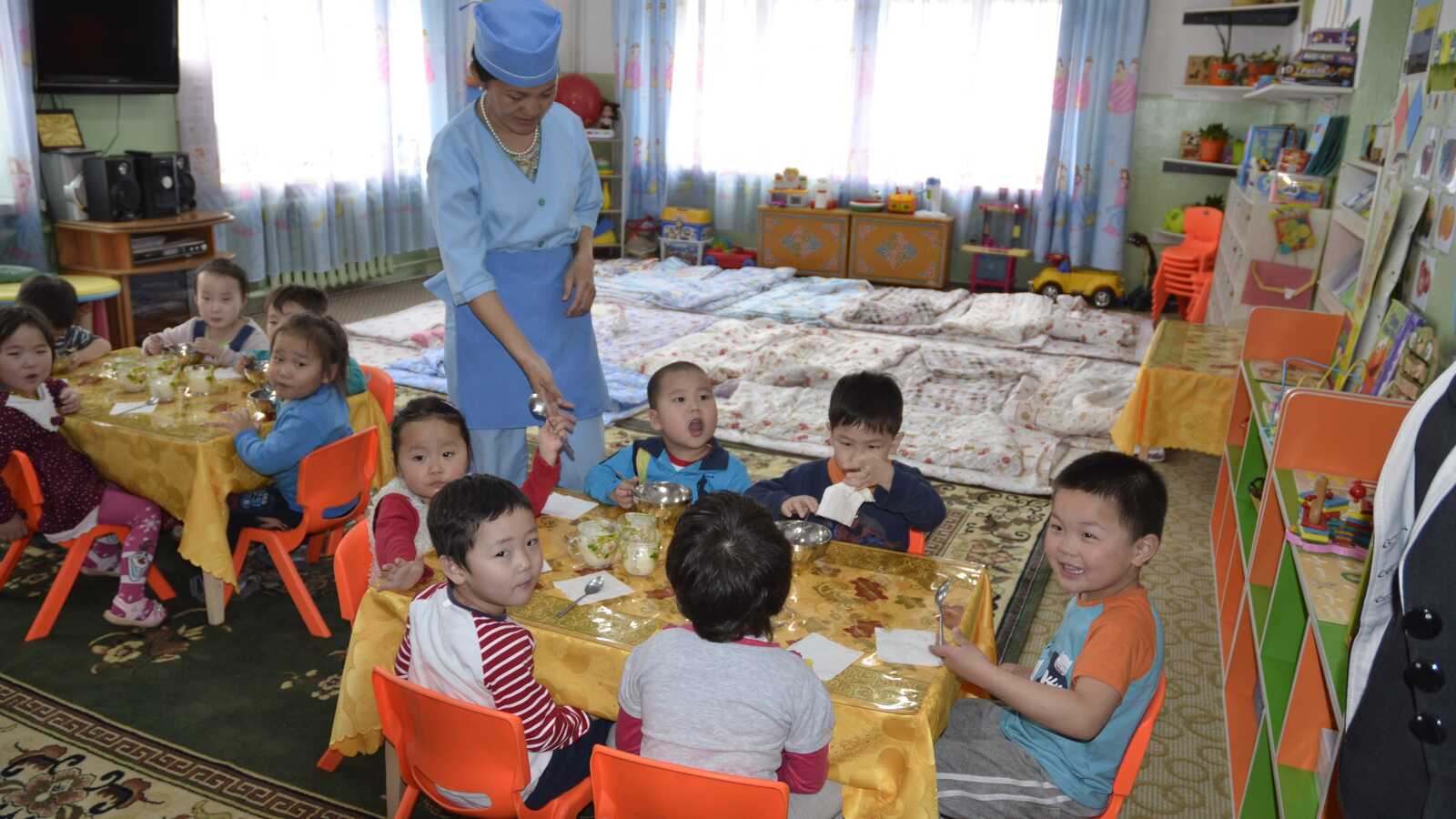At 3 years old, Batu was so malnourished that he could barely lift his head. But when a sponsor stepped up to support Batu — and his mom received Holt’s child nutrition program training — drastic changes began to happen in his life.
Batu weighed just 4 pounds when he was born. He had suffered damage to the part of his brain that affects motor control, and the muscles all over his body were weak and stiff. His parents were young — just 19 and 20. They didn’t know what to do when the doctor diagnosed their newborn son with cerebral palsy. They felt scared and overwhelmed, but they also felt immediately devoted to their child — and committed themselves to his care.
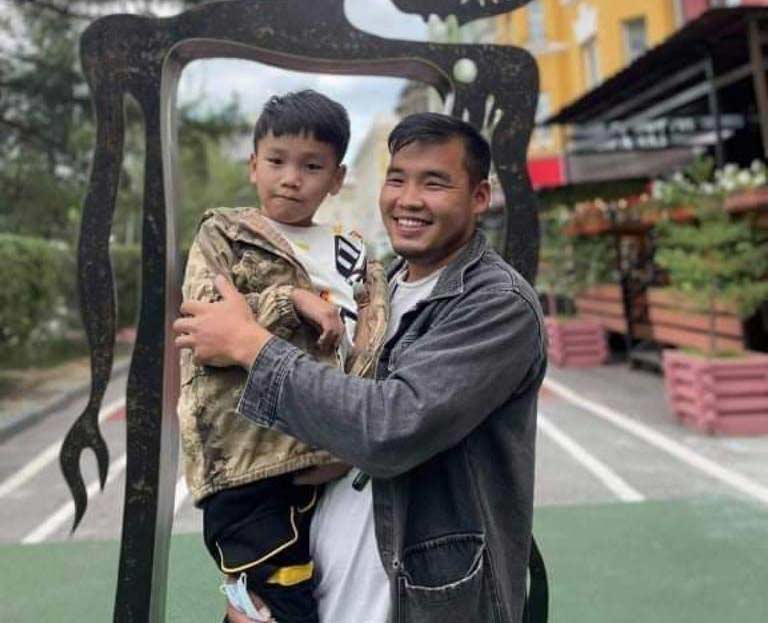
They explored different medical treatments and rehabilitation, and even took Batu to traditional healers. Batu’s mom stayed home from work for three years to care for her son. But without sufficient training to work with children who have CP, Batu’s mom was stressed and didn’t know how to best care for him. At 3 years old, Batu could barely lift his head. He was not able to sit down on his own. He could only say a few words, and not very clearly.
Most critically, Batu’s mom did not know how to feed him safely, making mealtimes hard for both of them. He wasn’t growing at a healthy rate and was malnourished. But she would not give up on her son. “Just keep trying harder,” she would say to herself. “Never give up on your child.”
Then, in September 2017, the first kindergarten for children with disabilities opened in the remote community where Batu and his family live — in the South Gobi region of Mongolia. Twelve children were accepted into the first class, including Batu. His mom also secured a job as a kindergarten teacher at Batu’s school — giving her the opportunity to learn how to work with children who have disabilities, and also support her son during the day.
Like Batu, many of the children in his class were malnourished or at high risk. Feeding issues are especially common among children with disabilities, and the new staff and teachers did not have training or knowledge about how to feed the kids in their care. But the kindergarten director knew of a special training program through Holt International that would provide just the skills and knowledge they needed. She reached out to Holt’s team in Ulaanbaatar and arranged for her staff to receive Holt’s child nutrition program training.
“Just keep trying harder. Never give up on your child.”
Batu’s Mom
Eager to help, Holt’s team in Mongolia not only offered the training. They also enrolled children at the kindergarten who showed signs of malnutrition into Holt’s child sponsorship program. For each child, this meant they would have a dedicated sponsor in the U.S. who would provide the nourishing food and medical care they urgently needed.
As the kindergarten staff began using the feeding techniques they learned — and as the children’s diet improved thanks to their sponsors — they began to see drastic changes in the children. Batu’s mom, especially, marveled at the changes in her son.
Today, Batu is a different boy from when he started kindergarten. “He is 7 years old now and is growing healthier and happier,” his mom shares. “Our life has become more colorful and meaningful again.”
How Sponsors Helped Revolutionize Nutrition for Orphaned and Vulnerable Children
Since the earliest days of Holt International, we have allied with sponsors and donors in the U.S. to provide nourishing food for weak and malnourished children around the world. Our mission has always been to ensure stable, loving homes for orphaned and vulnerable children. But before children can thrive in the love of a family, they first need food, shelter, medical care — the basic needs that monthly sponsors help provide for children living in poverty and in orphanages around the world.
Through the decades, Holt sponsors have not only helped meet basic needs for orphaned and vulnerable children — they have also helped elevate the standard of care for children living in orphanages and other group care settings. At the Ilsan Center in Korea, they helped provide therapies and adaptive equipment like wheelchairs for children and adults with disabilities. At Holt-partnering orphanages in India and Mongolia, they helped provide neonatal care for weak and fragile infants. In overcrowded orphanages in China, Vietnam and other countries, they helped Holt hire additional caregivers to ensure more one-on-one attention and nurturing care for each child. And just eight years ago, in 2014, support from sponsors and donors helped Holt launch a first-of-its-kind nutrition program that would go on to radically change the way children are fed and nourished in Holt partnering orphanages — and ultimately across Holt programs.
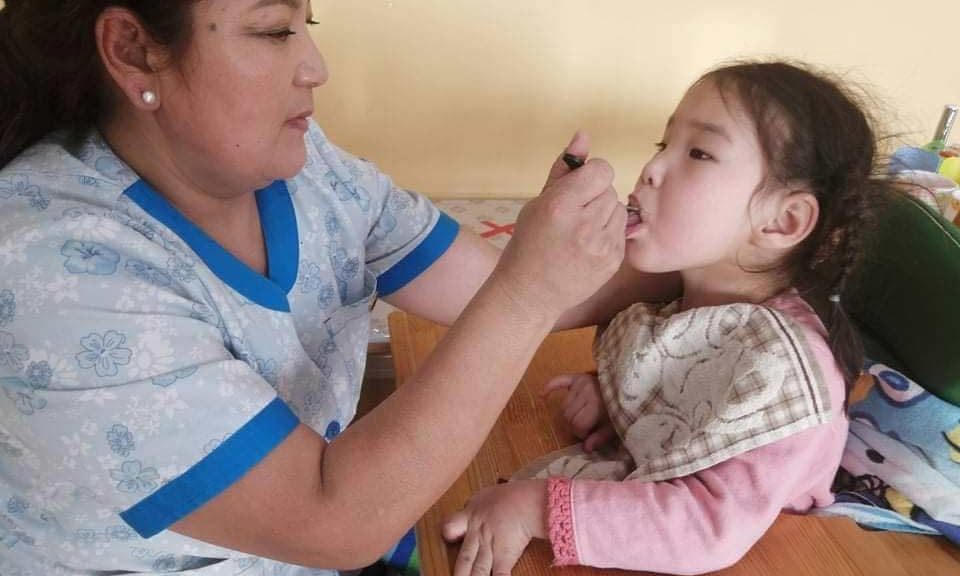
Emily DeLacey is Holt’s director of nutrition and health programs. A registered and licensed dietitian/nutritionist, Emily is also a PhD candidate with the London School of Hygiene and Tropical Medicine. She has drawn on her PhD research to inform her work with children living in orphanages through Holt.
“We started back in 2014 as a pilot program exploring the needs of vulnerable children, especially those living in institution-based care,” Emily says of Holt’s early nutrition program. “Through that, Holt identified a huge need around the nutritional status of children and launched the child nutrition program.”
Starting at orphanage sites in India, Holt brought in feeding and nutrition experts to screen children for malnutrition and other nutrition-related illnesses. The findings were immediately concerning — with many children underweight or malnourished, and a high number suffering from iron-deficiency anemia. The children in care were clearly not getting the nutrition and care they needed to grow at a healthy rate and reach their physical or cognitive potential. In some cases, diet was the culprit — children simply weren’t getting enough iron-rich foods. But in many cases, the reason children were malnourished had less to do with diet — and more to do with how they were being fed.
“How and what children are being fed are often the biggest reasons that children are at risk for malnutrition,” Emily says. “Many of the children we work with are at risk because of poor nutrition and feeding practices, which can stunt their growth and prevent them from reaching their full potential.”
When it came to feeding issues, the children most at risk were those with disabilities.
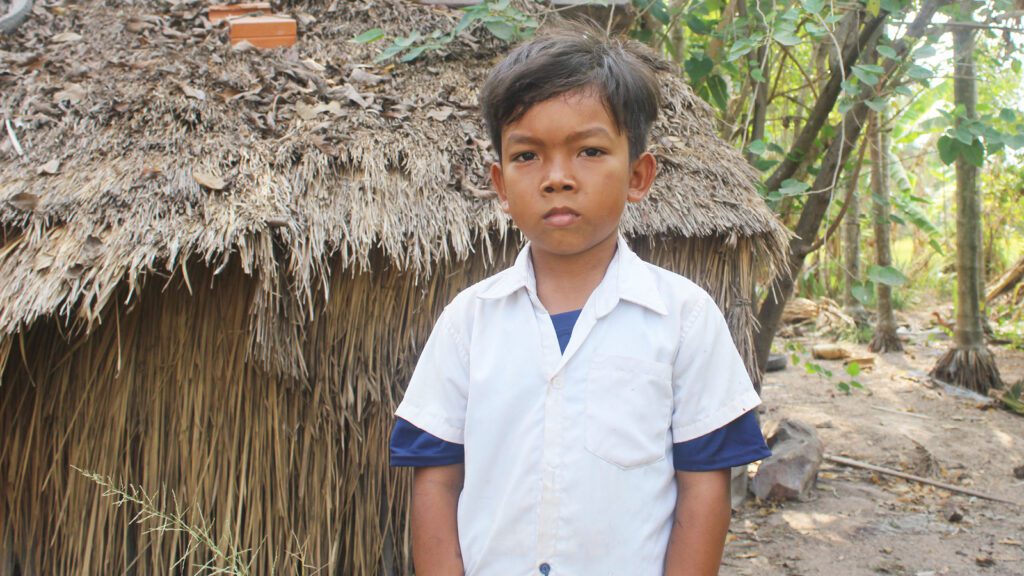
Give to the Molly Holt Fund!
Provide urgently needed medical care, therapies or special education to a child with a disability or special need.
“Children were often fed lying on their back because caregivers thought this would be easier for them to swallow. But for many of the children, including those with cerebral palsy, they would just choke on their meals and get food in their lungs,” Emily explains. “This resulted in many of them developing chronic respiratory infections.”

With many mouths to feed at the same time, overtaxed caregivers would also prop bottles for babies instead of holding them — a practice that can cause choking, aspiration and the development of disabilities among otherwise completely healthy children. Bottle propping also deprives infants of essential interaction needed for healthy cognitive development.
The caregivers didn’t realize the harm they were causing children and had never been taught proper ways to feed them. But before Holt developed our child nutrition program, trainings for caregivers on how to safely feed and position children by and large did not exist.
“Mealtimes were tough for both children and caregivers,” Emily says. “Caregivers were just trying to do what they thought would be best for the child. But without resources and knowledge, children were fed in ways that were unsafe and dangerous to their health — and many children lacked the ability to communicate how scary and distressing mealtimes were.”
With funding from sponsors and donors, Holt began developing a training program to teach orphanage caregivers how to properly feed children in their care — especially infants and children with disabilities. Holt brought in feeding specialists and other experts who taught caregivers how to use pillows and other available equipment to position children with disabilities so they wouldn’t choke on their food. Caregivers learned the importance of different food textures to aid in swallowing. They learned about diet, how to screen children for malnutrition, how to test for anemia, and how to track children’s growth to ensure they were receiving the nutrition they need.
In the years that followed, as Holt’s child nutrition program team traveled to different countries, they saw the same problems with nutrition and feeding at orphanage after orphanage. They trained caregivers in the same feeding techniques, and also taught the caregivers how to train others — allowing the training to grow and expand into different communities. The child nutrition program team went on to develop an easy-to-use training manual and translated it into nine different languages.
As of today, the program has trained caregivers at 60 sites across six countries, and the impact on children’s lives has been nothing short of transformational. Initial nutrition screenings showed 85% of children at child nutrition program sites to be experiencing malnutrition. But after one year in the program, malnutrition rates and severity reduced among all children — with 41% no longer experiencing feeding difficulties and 20% of children no longer experiencing any malnutrition. In every case, malnutrition became less severe overall.
“I wish sponsors could see every day what I get to see through my work. Because of their care and generosity, the entire trajectory of so many children’s lives are improved. The kindness of sponsors and donors impacts thousands of children just like Batu, strengthening their families and giving them the best possible chance at a beautiful life.”
Emily DeLacey, Director of Nutrition & Health Programs
Gradually, Holt’s child nutrition program began receiving recognition beyond orphanage partners — especially for the program’s impact on the health and wellbeing of children with disabilities. Across the regions where we work, demand increased for Holt to expand and adapt the program for children living in different care settings — including children living with their families in vulnerable communities.
“We now work in a variety of different settings,” Emily says. “We facilitate the CNP through a number of health centers to support families in really rural locations with health and nutrition and growth screening for their children, and support children with disabilities. In other countries, we are really involved in their foster care systems and we support foster families with the tools and resources they need to support the development and care of children. And in Mongolia, we are partnered with the government to serve almost every single kindergarten and school for children with disabilities.”
A Happier Life for Batu
When the director at Batu’s kindergarten reached out to Holt’s staff in Mongolia about receiving Holt’s child nutrition program training, our team already had a system in place to teach the kindergarten staff the skills they needed. Two schools for children with disabilities in Ulaanbaatar and Darkhan City had already received Holt’s full child nutrition program training, including the ability to train others. Holt invited the kindergarten staff to participate in a training at these sites, led by local trainers.
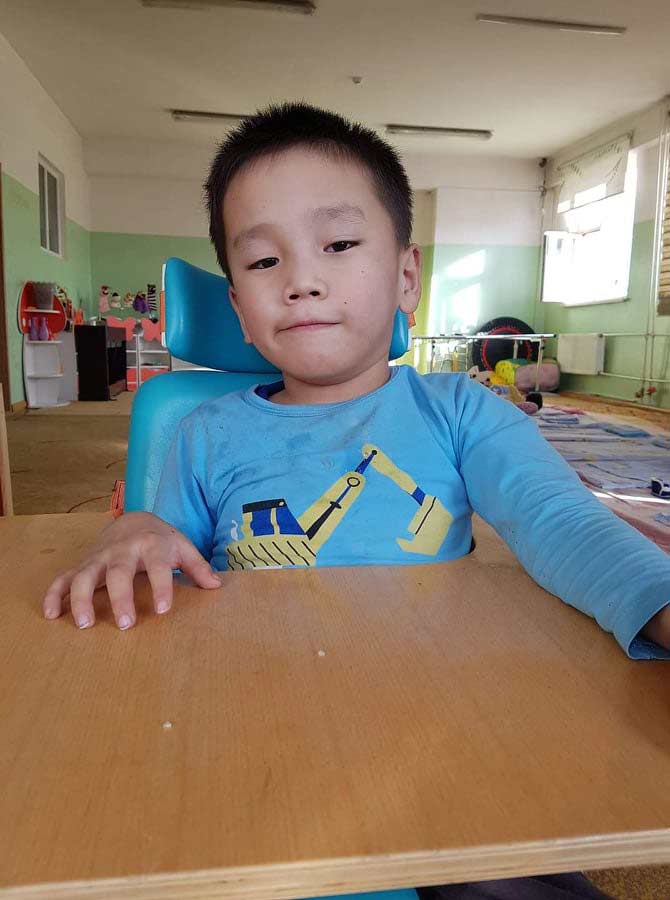
“Caregivers care so much about the children they work with and when they learn and see the impact of changing practices, they cannot wait to share their new skills with others,” Emily says. “We’ve had so much success with our program being structured as a training of trainers.”
As a teacher on staff at the kindergarten, Batu’s mom also received Holt’s child nutrition program training. What she learned completely changed her understanding about why her son was failing to thrive.
“Thanks to Holt’s child nutrition program training, I found out that I was wrong to think that kids with cerebral palsy have permanent unsolved problems with gaining weight due to tight muscle stiffness,” Batu’s mom shared. “The CNP training — and especially the feeding and positioning training conducted by Holt’s CNP team — revealed to me very well that the main problem was being unable to choose the right/appropriate food with appropriate texture and nutrients, as well as nutritional harmony and unlocking iron absorptions, sitting him in the right position, and understanding the sensory system and solving feeding problems.”
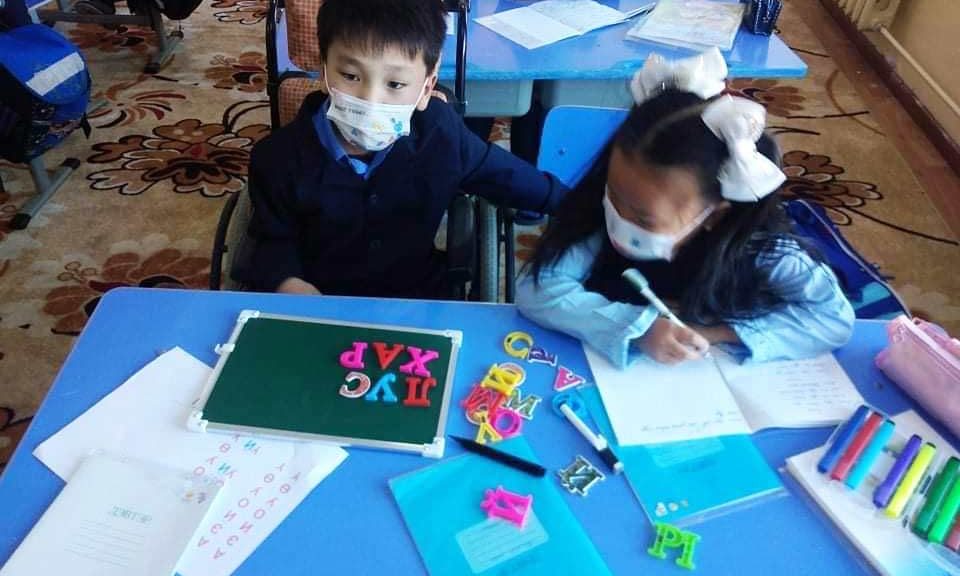
As Batu’s mom began applying what she learned in the training, she began to see profound changes in her son. At the same time, a child sponsor in the U.S. stepped up to help support Batu — providing more nourishing food than his family could otherwise afford.
“Holt’s child nutrition program monthly sponsorship fund [provided] additional nutritious food for 50 malnourished children,” Batu’s mom said. “[Since then], the quality of nutrition intake and feeding and caring were much improved. … My son started catching up on speech and physical development and regaining his weight.”
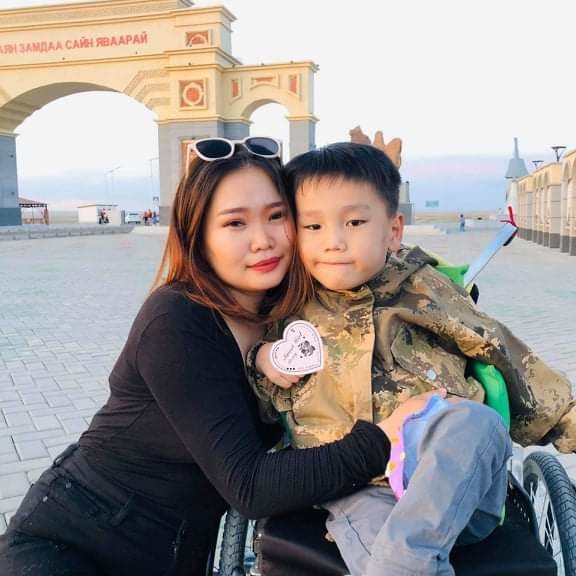
Today, Batu has achieved what his parents only dreamed possible. With the right nutrition and support, his development has quickly advanced. He can now sit and feed himself independently. He is very expressive and communicates freely with others, and his cognitive, social and speech development are on par with other children his age. Last fall, Batu started first grade at a local public school. Our staff in Mongolia shares that he is happily learning to read, write and count alongside his peers — both children with and without disabilities.
With his needs met and his mother confident in her ability to care for him, Batu recently graduated from Holt’s child sponsorship program. But at a time in his life when he needed it most, a sponsor stepped in to provide what he was missing — to provide nourishing food, and to empower his mom with the skills and knowledge she needed to help her son thrive.
“I wish sponsors could see every day what I get to see through my work,” Emily says. “Because of their care and generosity, the entire trajectory of so many children’s lives are improved. The kindness of sponsors and donors impacts thousands of children just like Batu, strengthening their families and giving them the best possible chance at a beautiful life.”
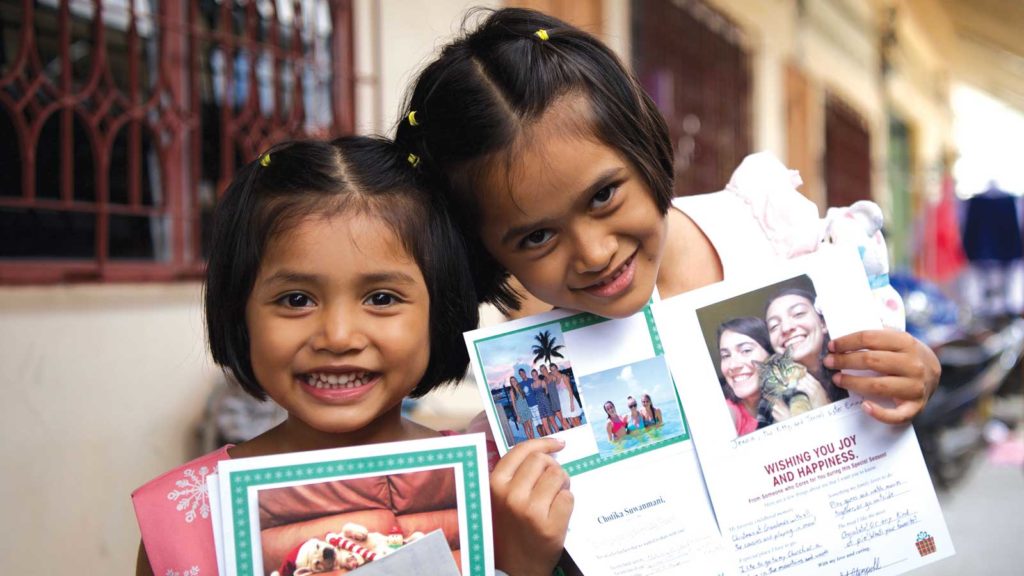
Become a Child Sponsor
Connect with a child. Provide for their needs. Share your heart for $43 per month.
